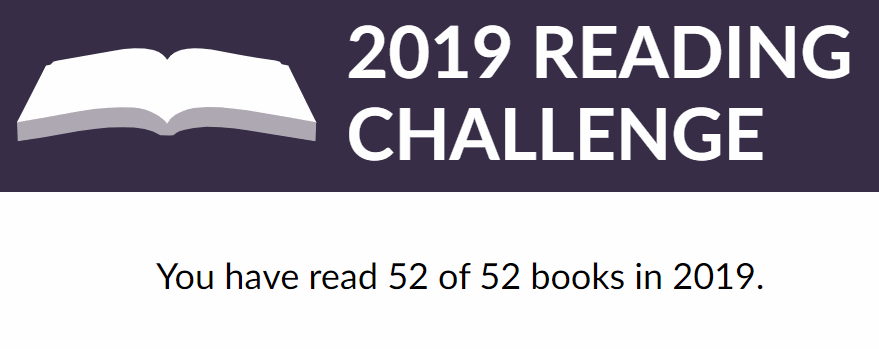
I almost never make New Year’s resolutions, but I did in January 2019: read a book a week for 2019. This weekend I finished my reading challenge with Jose Antonio Vargas’s Dear America: Notes of an Undocumented Citizen (I recommend it!). While book reading has always been a part of my life, as an academic who reads a lot for work (mostly in journal article form), book reading for fun hasn’t always fit in. I wanted it to be more prominent in my everydays and I’m glad that I achieved that. I only counted books that I read from cover to cover, there are certainly others I browsed and read parts of, but they didn’t count for my challenge. I included very different genres as my interests are eclectic, but the most prominent was memoirs and biographies (I am not a huge fiction fan so there were only a few of those on my list). Here, I want to share my top three overall favorites; another three that you are unlikely to have heard of, but that I found very much worth reading; three that were the most disappointing; and three art books I enjoyed. While I have an insane “would like to read” list already, I very much welcome your recommendations for 2020 (when I’ll even have a semester of sabbatical in the Fall so I definitely plan to get at least as much reading in).
Overall top 3
Madame Fourcade’s Secret War by Lynne Olson – A fascinating story told in an incredibly engaging manner about the young woman, Marie-Madeleine Fourcade, who led the largest French resistance network during WWII. This book is now among my all-time favorite books.
Educated by Tara Westover – You’ve probably heard of this book, it’s been very popular, and deservedly so. The author was raised in a very religious family in Idaho that did not believe in public education. The family dynamics are insane and intense. It’s often a tougher read than I expected due to the difficulties she faced beyond what you may imagine going in.
Evicted by Matthew Desmond – Based on the author’s sociology dissertation, this is an important story about major housing challenges in poor urban America. The research is first-rate, the writing excellent. (If I want to get academic, I’ll note my one critique: a lack of discussion of what role digital media may have played in people’s lives. The absense of this in the book is jarring to someone like me who studies the use of information technologies. Jeff Lane’s the Digital Street addresses that angle as does the work of Will Marler, a graduate student at Northwestern whose dissertation I am advising, but not specifically about housing challenges. I would have liked to see some of this in Evicted.) An refreshing aspect of the book is that it offers concrete policy recommendations at the end.
Top 3 you probably haven’t heard of
[click to continue…]